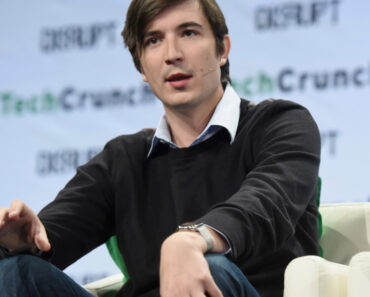This post was originally published on this site
For all its gratuitous perks and so-called innovation, Silicon Valley companies still haven’t figured out how to fend off employee burnout. The tech industry is notorious for grueling 80-hour-plus workweeks that push workers to the brink of exhaustion, all for the sake of releasing a new app, feature, or device on time.
But a resort 45 minutes outside San Francisco called Canyon Ranch Woodside, which opened in early December, wants to help overworked techies find a brief respite from their whirligig work schedules and feng shui their minds, bodies, and souls. Canyon Ranch’s Woodside location is the latest resort from the high-end Canyon Ranch group, which first opened in 1979 and has established resorts in places like Tucson and Lenox, Mass., as well as spas in Las Vegas and aboard Celebrity Cruises and Cunard vessels.

Canyon Ranch Woodside breaks the mold of previous Canyon Ranch resorts and spas by focusing on a wellness retreat model. Instead of weeklong stays, Woodside expects its guests to spend just two or three days at its resort. According to Texas billionaire and Canyon Ranch owner John Goff, that’s just enough time for guests to “unplug, reboot, and reconnect” with nature, thanks to the resort’s programming.
“Our research showed us that Silicon Valley and the surrounding Bay Area had some of the highest web search numbers for ‘retreat,’” explains Goff. “We’re seeing guests take shorter but more frequent trips that are highly experiential. The Bay Area is globally known for brilliance and technology, and a place where individuals understand wellness and how it fits into their lives, but likely need a physical change of scenery to embrace it.”

Woodside aims to offer
just that. The resort’s 38 guest rooms, sprawled across 16 acres of forest and
surrounded by towering, 50-foot-plus redwood trees, start at $899 and include
all meals and programming.
Although guests can ultimately do as they please during their stay, Woodside follows a wellness retreat format, with various multiday programs, including three signature retreats called Connect, Recharge, and Reset.
A typical three-day Recharge retreat, for instance, includes sunrise meditation and somewhat unorthodox fitness classes: a “zen boot camp” obstacle course, balancing on a Bosu ball, mountain biking sessions, hikes along the coast, as well as fireside chats with local guest speakers, communal dinners, and stargazing in the evening. Guests even have an option to seek holistic therapy through spiritual wellness guides and certified “deburdeners,” or licensed listeners and healers. (Yes, really.)

Each day’s meals are nutritionist-approved,
organic, unequivocally healthy, and in typical Bay Area style, served with
ingredients sourced from within 25 miles. The result:
nutrient-dense dishes best consumed in small portions, like lentil and wheat
berry salad and coconut milk chia pudding. Salt and pepper are available upon
request, and alcohol, a first for the Canyon Ranch brand, is now offered at
evening meals and events.
For Canyon Ranch, Woodside represents a plum opportunity for the luxury hotel group to capitalize on the growing wellness trend in hospitality. According to the Global Wellness Institute, wellness tourism will grow to nearly $920 billion by 2022—up from $639 billion in 2017. Such growth helps explain why newer hotels and resorts—including the recently opened Aman Kyoto and Club Med Michès Playa Esmeralda—make wellness front-and-center in their pitches to prospective guests.

“Unlike when Canyon Ranch opened 40
years ago, today’s consumers understand wellness, value it, view it as a
necessity, and are willing to pay for it,” contends Goff. “Travelers
increasingly expect and require wellness experiences when traveling for
business or pleasure, and are making decisions accordingly. In 2020, self-care
will continue to remain a trend as people see it as an essential, not
indulgent, part of their everyday lives.”
Droves of fatigued tech workers would most likely agree.
More must-read stories from Fortune:
—This Vegas casino just completed Sin City’s most expensive renovation ever
—Escape the Game of Thrones crowds and enjoy a luxury Croatian vacation in Dubrovnik
—Your modern weekend away meets the Old West in this sleepy California town
—Mexico’s most enticing getaway: San Miguel de Allende
—This hotel is made up entirely of tiny houses
Follow Fortune on Flipboard to stay up-to-date on the latest news and analysis.





